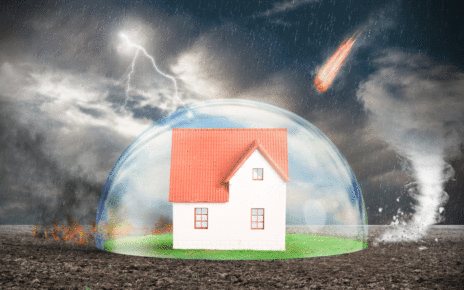by Linda Pierce, Esq., Gallagher
1. UPDATE EMERGENCY AND ESSENTIAL CONTACT INFORMATION
Residents and staff should update their emergency contacts as they may have changed. Necessary personnel should have access to external essential contacts such as insurers, utility providers, and other service providers.
2. REMIND RESIDENTS HOW TO PREPARE FOR AN EVACUATION
Residents may want to keep their bags packed with important papers, medication, toiletries, clothes, and other essentials. Particularly in hot, windy weather, fires can start quickly and move fast. Having an evacuation plan, communicating it to staff and residents, and practicing an evacuation is an effective way to evaluate the efficiency of your plan and to address improvements. With evacuations, time is of the essence. The more people understand what they need to do in the event of an emergency, the smoother an actual evacuation may go.
3. ANTICIPATE POWER OUTAGES
Many utility companies have initiated power cut-offs to reduce the risk of fire, especially in severe warm, dry, and windy weather conditions. Facilities and residents should have emergency lighting available to avoid the risk of injury if they are navigating in the dark. As daylight savings approaches, it is important to take steps to make sure appropriate lighting is available. Solar battery operated strip lighting is an easy and convenient way to keep walkways and trip hazards lit even when electrical power is not available. Consider purchasing solar and other back-up chargers for phones and other necessary electronic equipment.
4. PREPARE FOR A SMOKY CLIMATE
Smoke from wildfires can linger for days and can severely impact those in affected areas. To minimize health risks, consider keeping a stock of air filters on hand to change as needed. Monitor air conditions in areas where you have facilities and limit outdoor activity during days of unhealthy air quality.
5. ENCOURAGE RESIDENTS TO UPDATE THEIR PERSONAL PROPERTY INSURANCE
Residents should obtain personal insurance to cover their personal property. Some valuable items, such as jewelry, may require specific itemized coverage. The best time to understand how a policy should respond to a loss is before a loss occurs. Encourage your residents and their families to review their coverage with their agents.
6. PREPARE FOR THE EMOTIONAL IMPACT OF FIRE SEASON
Hearing about devastating fires and watching televised news stories covering these events can cause stress and anxiety. In addition, unhealthy air quality produced by these events and the unseasonable dry weather conditions can cause residents physical and emotional discomfort. Particularly now, when people are feeling more socially isolated, the fear and anxiety that comes with the wildfires is amplified. Consider activities that could assist, such as socially-distanced games, trivia events, or music programs.
7. USE TECHNOLOGY AND TOOLS THAT HELP YOU PREPARE
Consult your insurer or broker to see if they offer any wildfire predictive modeling and real-time monitoring tools. These tools can help you plan and respond to natural catastrophe events. Gallagher offers clients its Gallagher Forecast tool, an online platform that visually transforms property statement of values (SoV) into actionable insights and catastrophe risk analytics, and offers real-time alerts as conditions change.
Wildfires can be unpredictable and fast moving. Preparing and practicing the proper response now can help mitigate loss from the event, and in the aftermath. As you navigate your organization’s current exposures and insurance needs, please reach out to your Gallagher Risk Control team to help you create a plan for success. For additional information on how to plan and prepare for wildfires, you can visit Gallagher’s resource page at https://www.ajg.com/us/wildfire-preparedness
About Gallagher:
Gallagher is the brand name of Arthur J. Gallagher & Co. Arthur J. Gallagher & Co. (NYSE:AJG), a global insurance brokerage, risk management and consulting services firm, is headquartered in Rolling Meadows, Illinois. The company has operations in 49 countries and offers client service capabilities in more than 150 countries around the world through a network of correspondent brokers and consultants. For further information, please visit www.ajg.com


 As of October, 44,000 wildfires have burned more than 7.7 million acres in the United States – 4 million acres in California alone this year. No matter where you are located in the U.S., but particularly in the western states, chances are that you and your residents have been affected by wildfires, either directly or indirectly.
As of October, 44,000 wildfires have burned more than 7.7 million acres in the United States – 4 million acres in California alone this year. No matter where you are located in the U.S., but particularly in the western states, chances are that you and your residents have been affected by wildfires, either directly or indirectly. 

